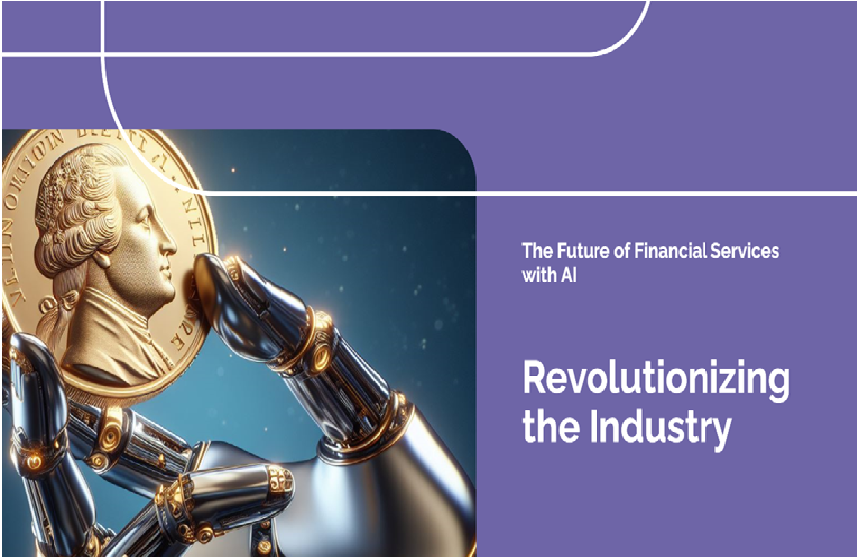
The Impact of Artificial Intelligence on Financial Services
The advent of artificial intelligence (AI) marks a pivotal shift in the technological landscape, extending its influence across various sectors with significant strides in financial services. As AI technologies evolve, they bring about profound transformations in how financial operations are conducted, offering unprecedented efficiencies and personalized services. This integration of AI into financial services mirrors the broader impact of technology on market strategies, much like the insights offered by the top recommended books for Price Action Trading, where the blend of traditional techniques and modern technology creates new avenues for traders. The promise of AI in financial services is twofold: on one hand, it streamlines operations, reduces costs, and enhances customer experiences; on the other, it presents new challenges in terms of data security, privacy, and the need for updated regulatory frameworks.

This duality sets the stage for a deeper exploration into the multifaceted impact of AI on the financial sector. From revolutionizing banking operations and investment strategies to redefining customer service, AI’s role is both transformative and expansive. As we delve into how artificial intelligence is reshaping banking, investment, and customer interaction, it becomes clear that AI is not just an auxiliary technology but a core component driving the future of financial services. This exploration will uncover the opportunities AI presents for making financial services more accessible, efficient, and tailored to individual needs, while also considering the complexities and challenges that accompany its widespread adoption.
AI in Banking Operations
The integration of Artificial Intelligence (AI) into banking operations marks a significant leap towards operational excellence, cost efficiency, and enhanced security. By automating routine tasks and bolstering risk management frameworks, AI technologies are not just augmenting but, in many instances, revolutionizing the banking sector.
Streamlining Processes and Reducing Costs
One of the most immediate impacts of AI in banking is the automation of routine tasks. Activities that once required hours of human effort, such as data entry, transaction processing, and customer verification, are now being executed with unparalleled speed and accuracy by AI algorithms. This automation extends to more complex operations like loan underwriting and credit scoring, where AI systems analyze vast datasets to assess applicant credibility, significantly reducing the time and manpower required for these tasks.
The cost implications of these efficiencies are profound. By reducing the need for manual intervention, banks can significantly lower their operational costs. Moreover, AI-driven process automation leads to fewer errors and discrepancies, further minimizing the financial losses associated with human mistakes. The operational speed also allows banks to serve more customers without proportional increases in overheads, translating to better scalability and profitability in the long run.
Risk Management and Fraud Detection
Beyond process automation, AI plays a pivotal role in enhancing the ability of banks to manage risks and detect fraud. Traditional risk management and fraud detection methods often rely on set rules and historical data, making them somewhat reactive and limited in their ability to adapt to new fraud tactics. In contrast, AI and machine learning algorithms thrive on the dynamic analysis of behavioral patterns and transaction data in real-time, enabling them to identify anomalies that could indicate fraudulent activities or emerging risks.
Machine learning models are trained on vast amounts of transaction data, learning to discern between legitimate and suspicious activities by recognizing patterns that are too subtle or complex for human analysts to detect. These AI systems can adapt to new information, continually refining their detection capabilities as they are exposed to new data. This adaptive nature of AI is crucial in an environment where fraudsters constantly evolve their techniques to bypass security measures.
Moreover, AI-driven risk management extends beyond fraud detection. It encompasses the prediction of market trends, assessment of loan default risks, and evaluation of operational vulnerabilities, among other aspects. By providing a more nuanced and comprehensive analysis, AI helps banks not only respond to threats but also proactively manage their risk portfolio, adjusting their strategies in anticipation of future changes in the market or customer behavior.
In fraud detection, the deployment of AI has led to significant reductions in false positives, a common challenge in traditional fraud detection systems. False positives, or legitimate transactions flagged as suspicious, can lead to blocked transactions and poor customer experiences. AI’s ability to learn and improve over time means it can more accurately distinguish between genuine fraud and unusual but legitimate transactions, enhancing both security and customer satisfaction.
AI in Investment Strategies
The advent of Artificial Intelligence (AI) and machine learning has significantly transformed investment strategies, introducing efficiencies and capabilities previously unimaginable. In the domain of algorithmic trading and wealth management, AI’s impact is profoundly reshaping how investments are approached, managed, and optimized.
Algorithmic Trading
In the fast-paced world of financial markets, algorithmic trading has emerged as a prime example of AI’s transformative power. By leveraging machine learning algorithms, trading systems can now analyze vast datasets — from market trends and economic indicators to news articles and social media feeds — to make predictive trading decisions in a fraction of a second. This capability enables traders, including those operating through reliable forex brokers like NordFX, to execute trades at optimal prices, maximize returns, and mitigate risks more efficiently than ever before. NordFX, recognizing the potential of AI, offers advanced trading platforms that cater to the needs of algorithmic traders, providing them with the tools to harness the speed and analytical power of AI for enhanced trading outcomes.
Robo-Advisors
The rise of robo-advisors represents another significant leap forward, democratizing access to personalized investment advice. These AI-driven platforms use algorithms to assess an individual’s financial situation and goals, constructing tailored investment portfolios with minimal human intervention. By automating the wealth management process, robo-advisors significantly lower the barriers to investment services, making it easier and more cost-effective for a broader audience to access professional investment advice. This automation not only reduces costs for investors but also introduces a level of personalized service that was once the preserve of high-net-worth individuals. For clients of brokers like NordFX, the integration of robo-advisory services enhances their investment experience, providing them with customized, algorithmically-driven strategies that align with their unique financial goals and risk tolerance.
Enhancing Customer Service through AI
The deployment of AI-driven chatbots and virtual assistants has marked a significant advancement in customer service within the financial sector. These intelligent systems are capable of providing instant, on-demand assistance, efficiently handling a wide array of customer queries and transactions without the need for human intervention. The immediacy and availability of support they offer significantly enhance customer satisfaction, allowing for round-the-clock service that aligns with the modern consumer’s expectations for swift and effective solutions. Financial institutions, including leading forex brokers like NordFX, have adopted these technologies to ensure their clients receive timely assistance, whether it’s navigating trading platforms, understanding account features, or executing transactions.
Beyond improving service responsiveness, AI plays a crucial role in personalizing the banking experience. By analyzing customer data, AI can identify patterns and preferences, enabling financial services to tailor their products, services, and communications to meet individual needs. This level of personalization not only deepens customer engagement but also fosters loyalty by making customers feel understood and valued. From customized investment advice to personalized product recommendations, AI’s capacity to leverage data for enhancing customer experiences is transforming the way financial services interact with their clients, setting a new standard for customer-centric banking.


